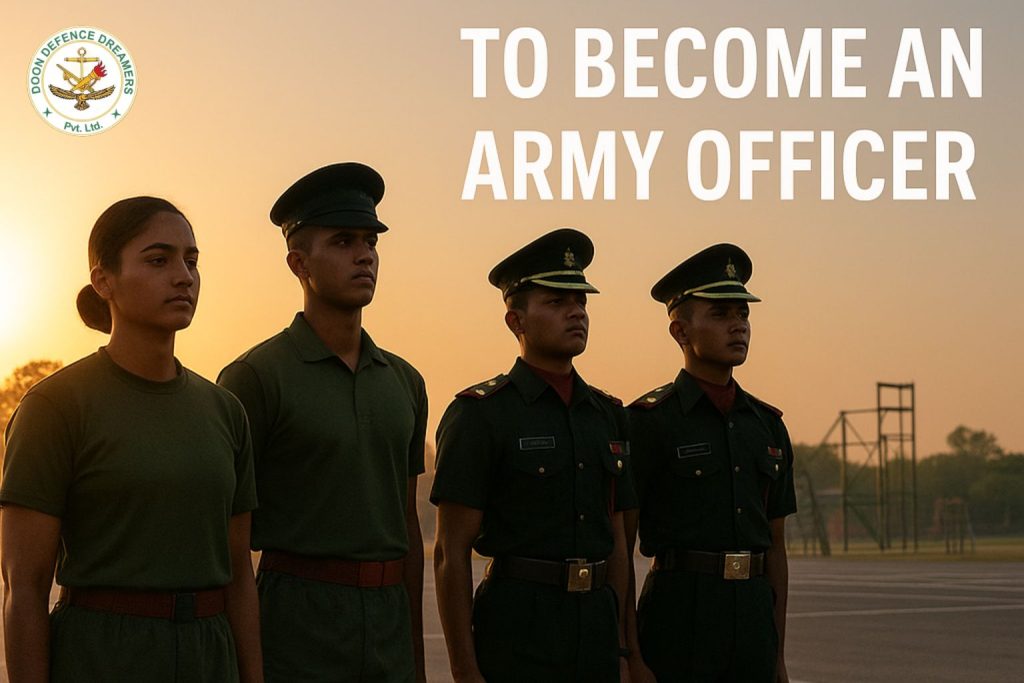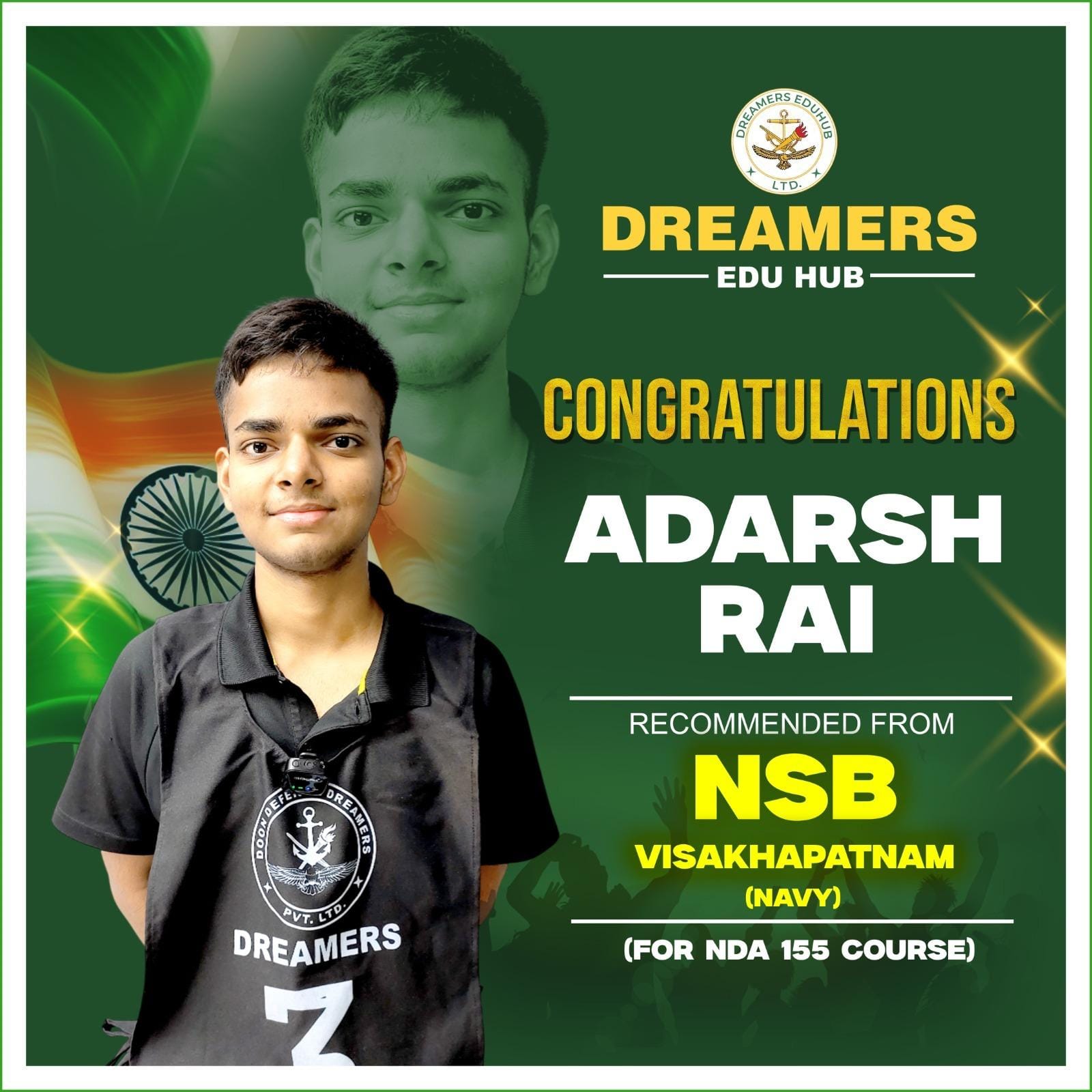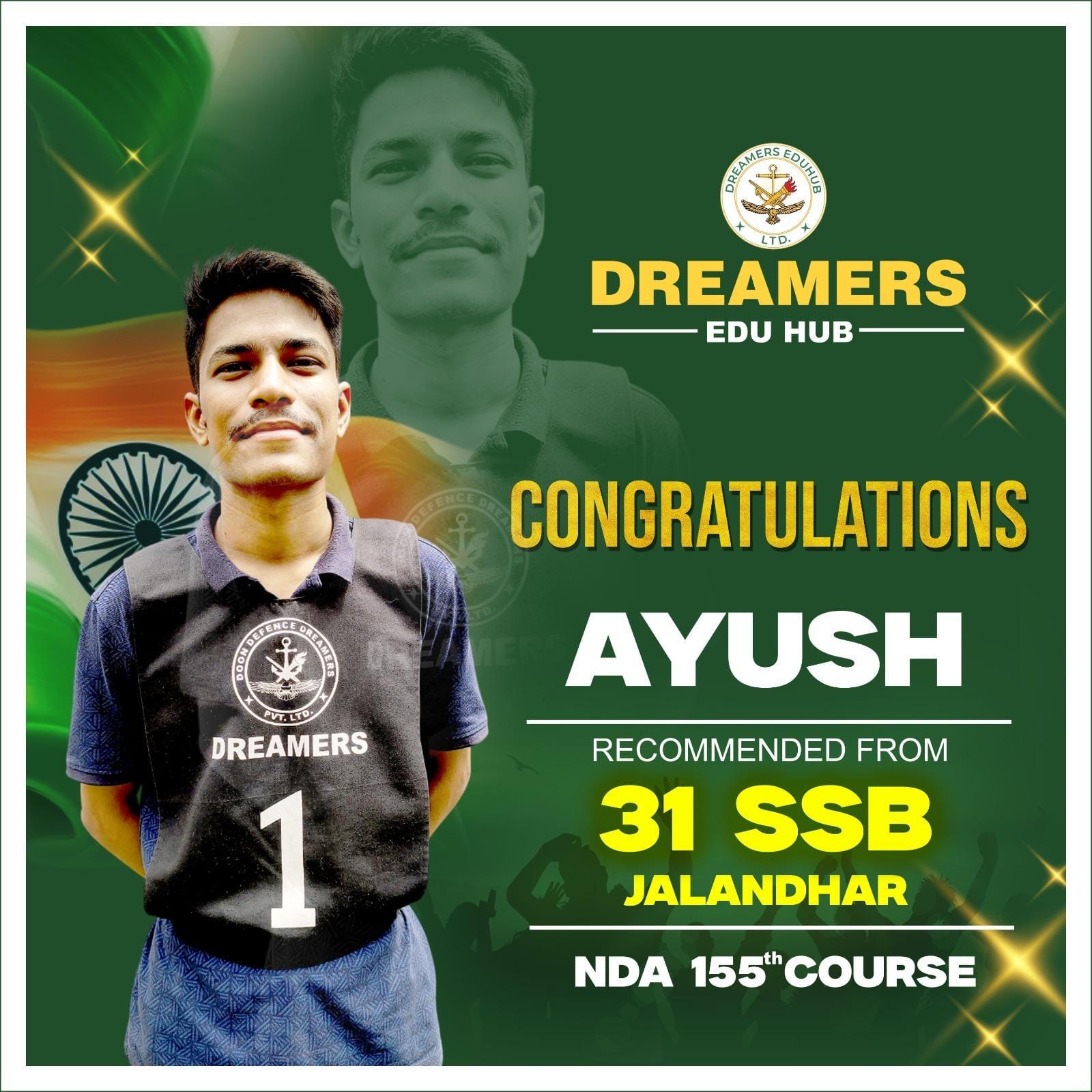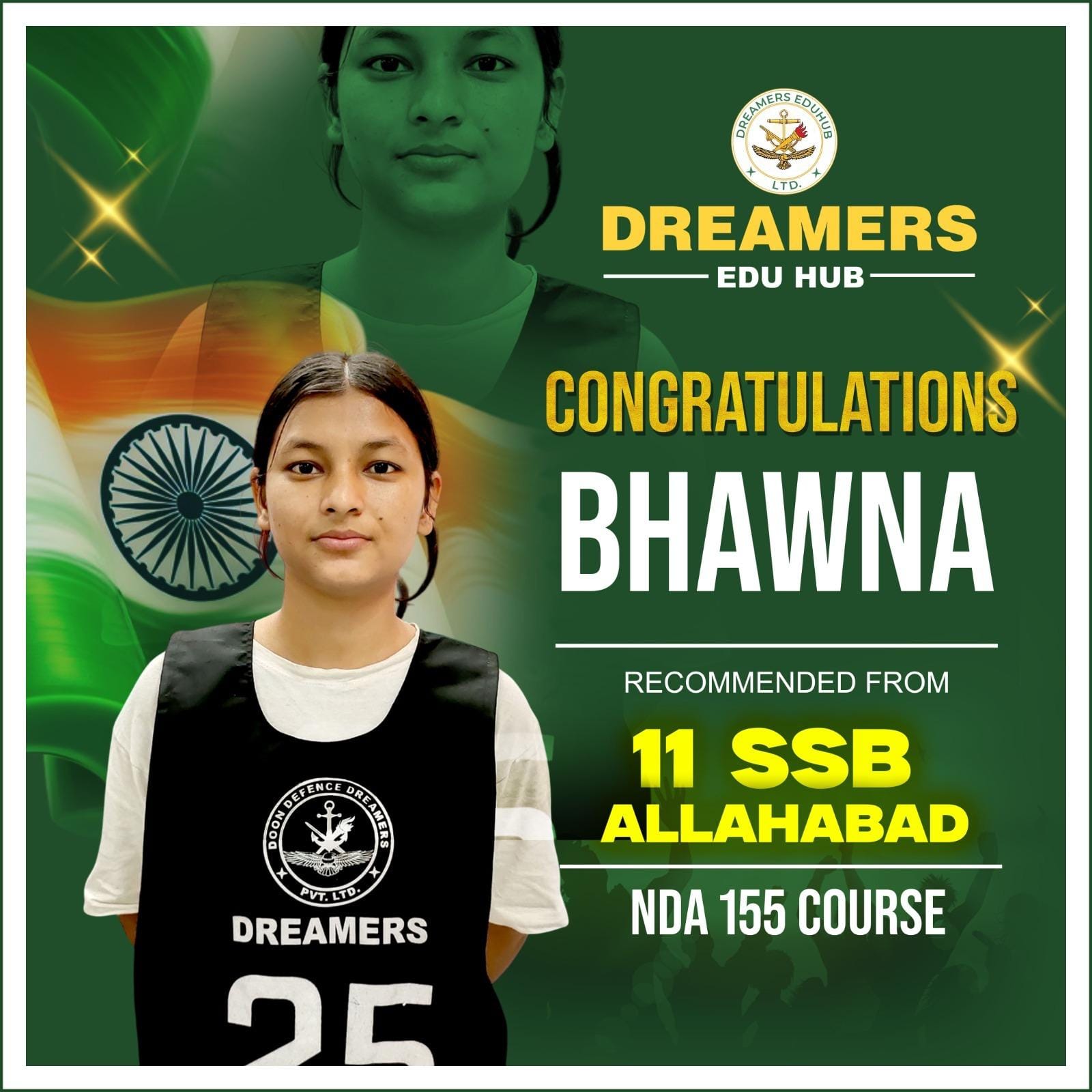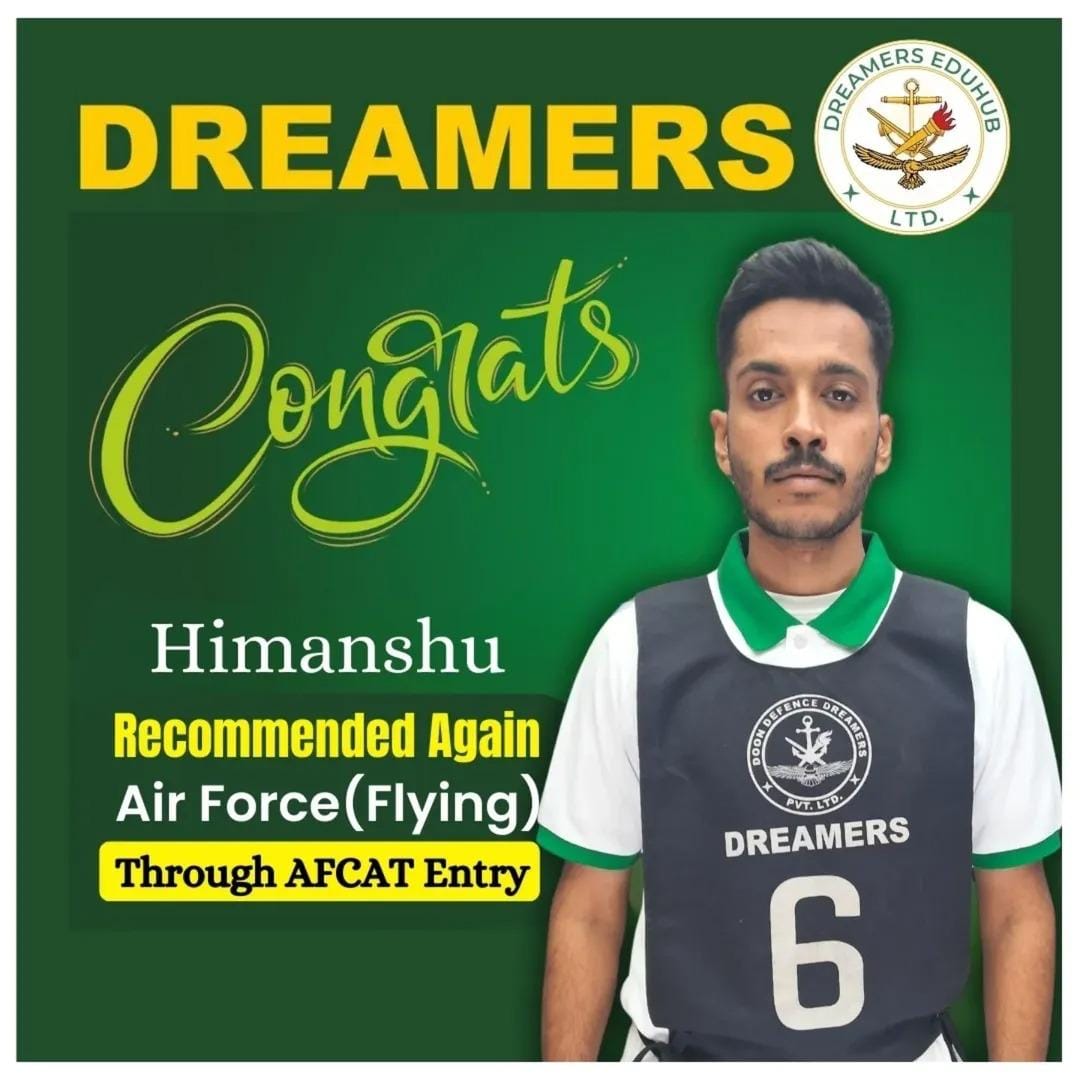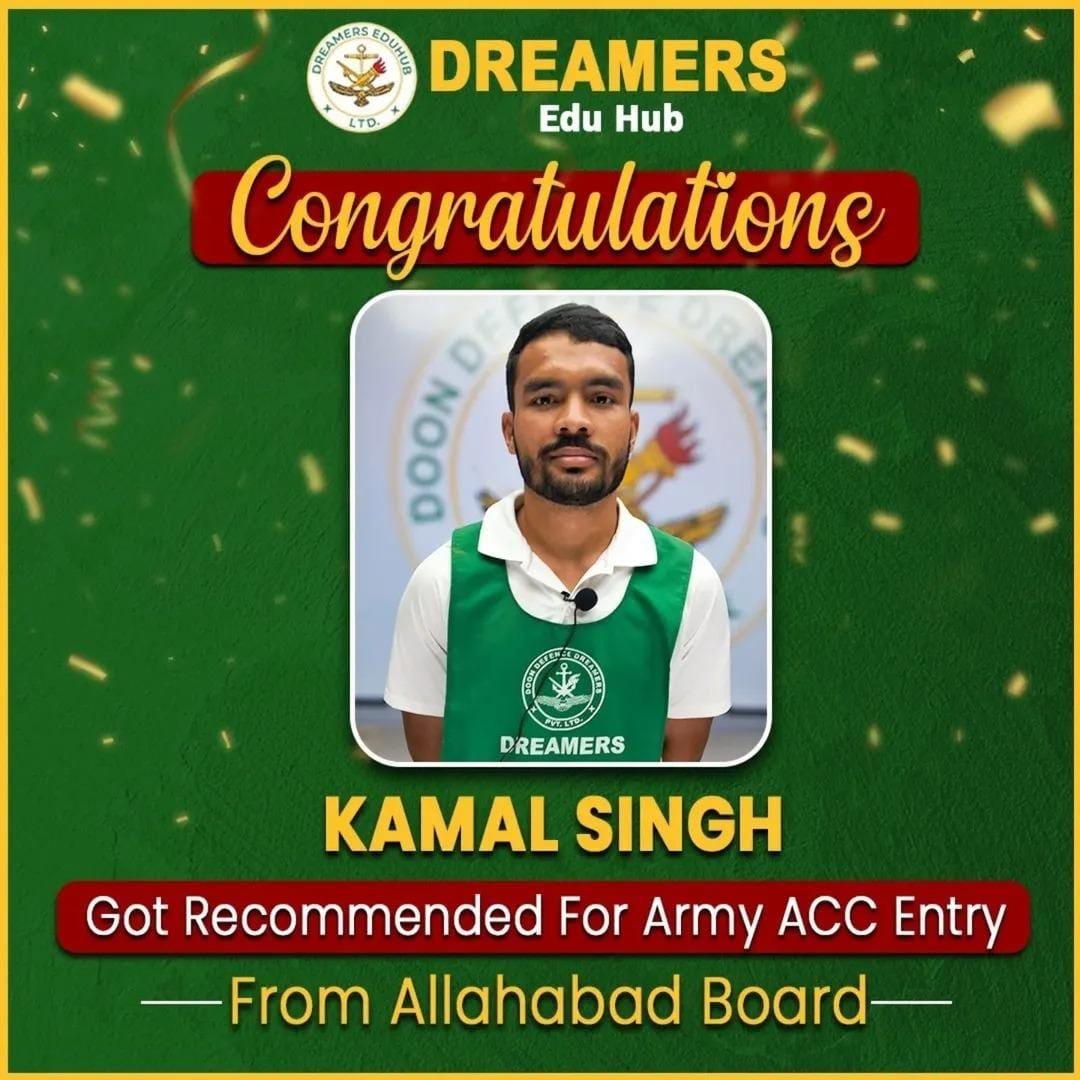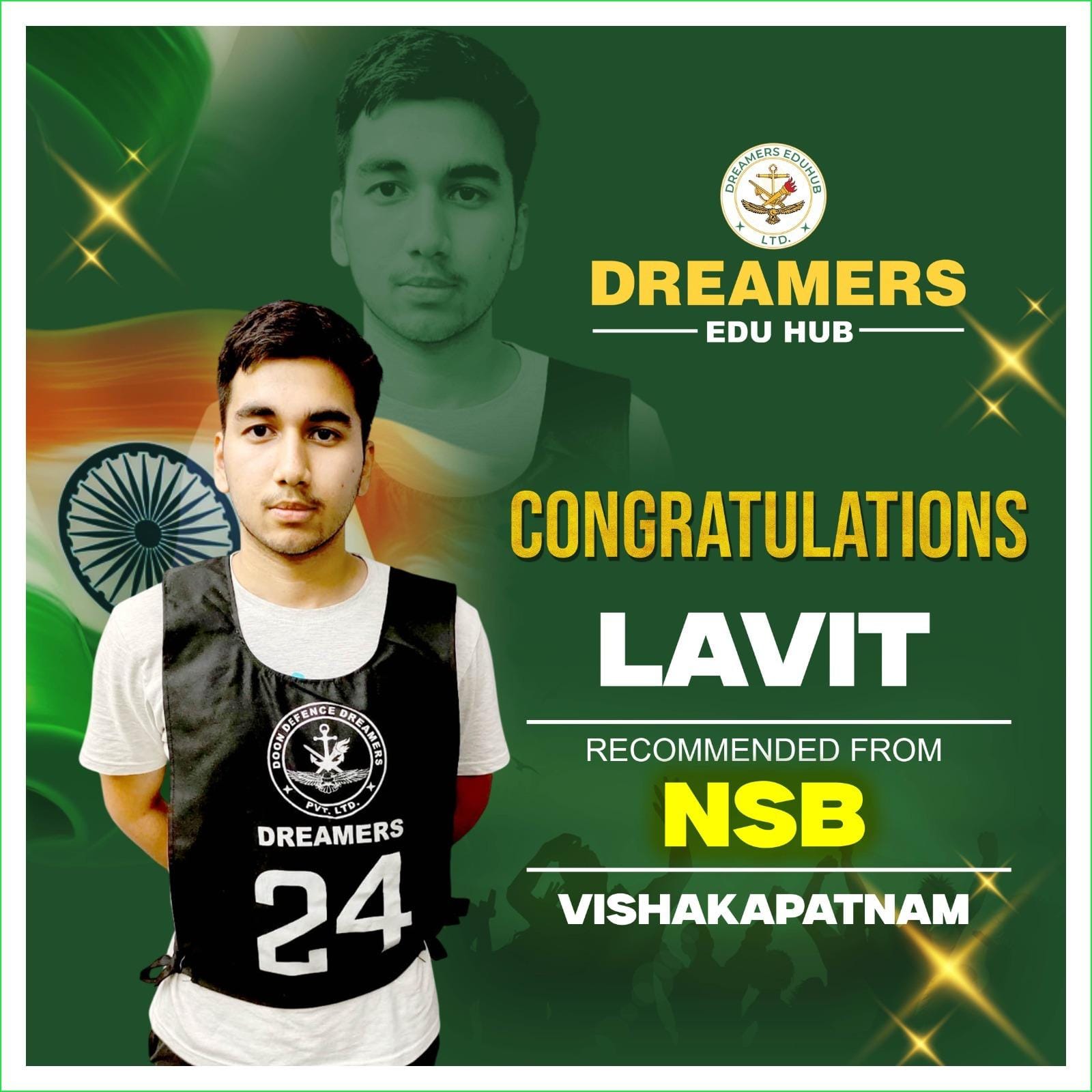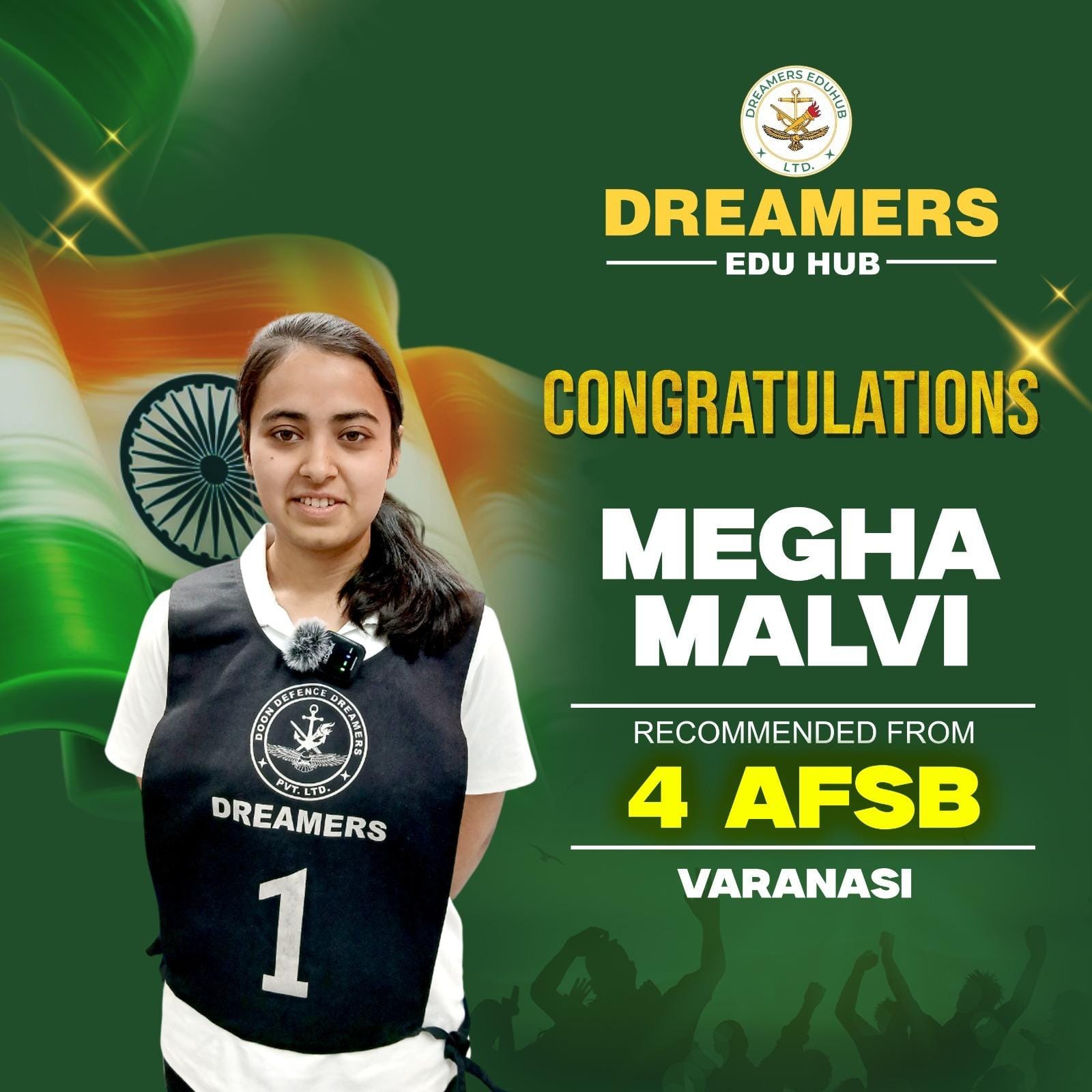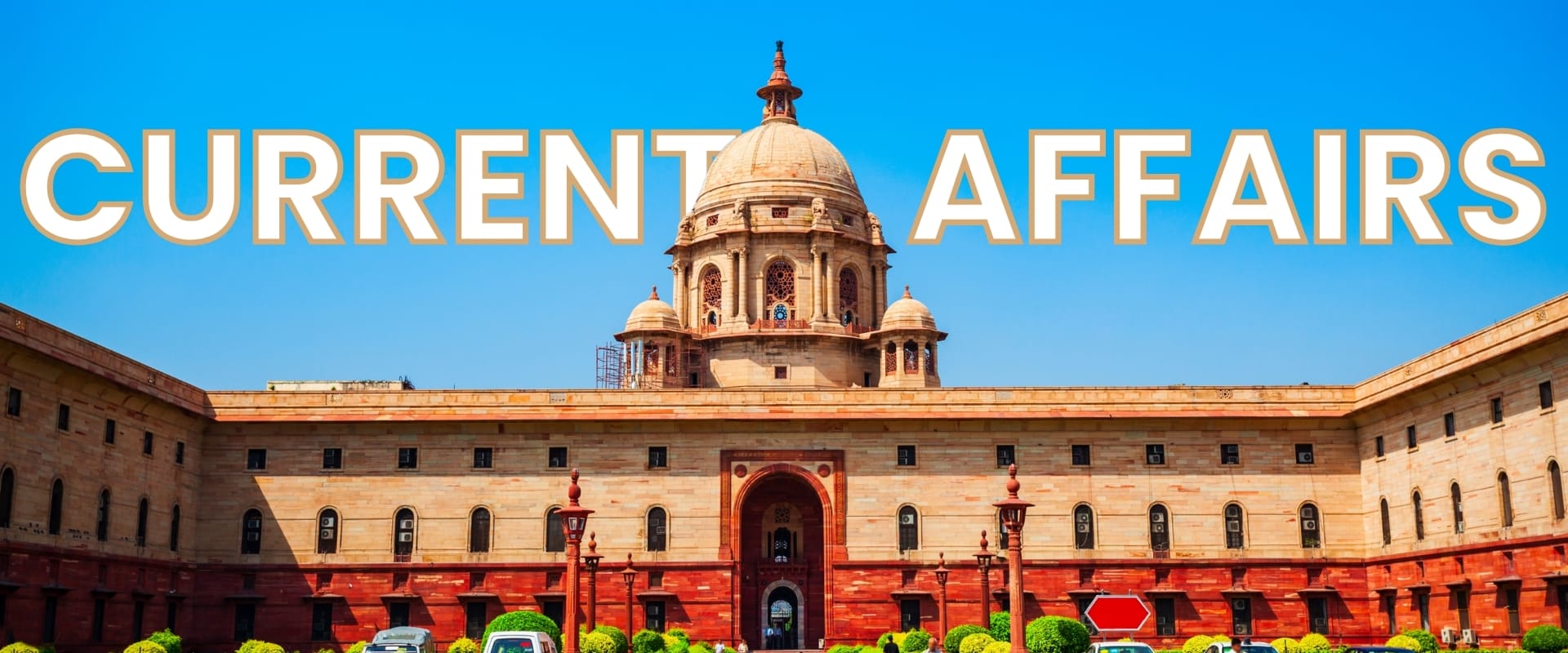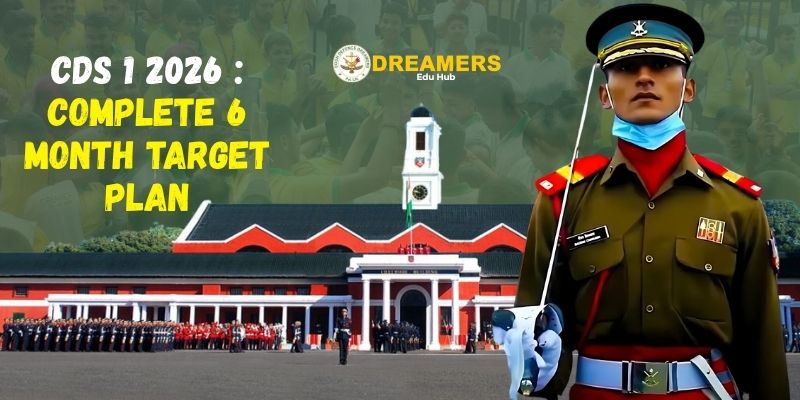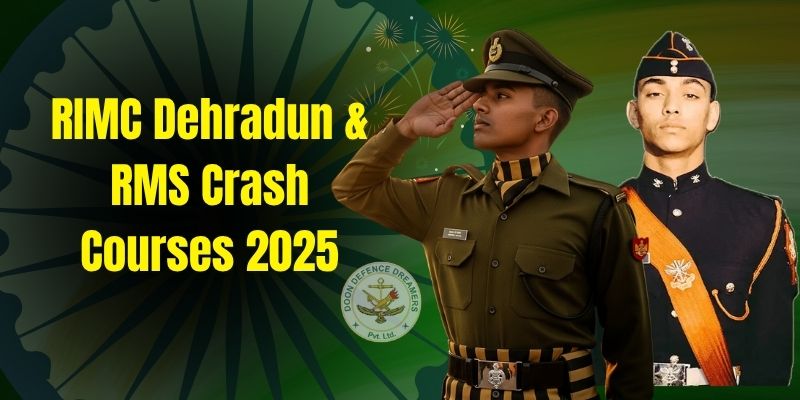If your dream is to Become An Army Officer, you’ll need clarity, discipline, and a plan. This guide breaks down the 10 best ways—from choosing the right entry route-NDA, CDS, NCC, Technical, to mastering SSB interviews and officer-like qualities—so you can move from aspiration to appointment.
Quick Look: Officer Entry Routes in India
| Entry Route | Who It’s For | Commission Type | When to Apply |
|---|---|---|---|
| NDA | Class 12 passed/appearing (16.5–19.5 yrs) | Permanent (IAF/Army/Navy) | Twice a year via UPSC |
| CDS (IMA/OTA) | Graduates (varied age limits) | Permanent (IMA) / Short Service (OTA) | Twice a year via UPSC |
| NCC Special Entry | NCC ‘C’ Certificate holders | Permanent/Short Service | As per notification |
| Technical (TGC/SSC Tech) | Engineering graduates | Permanent/Short Service | As per notification |
| JAG (Law) | Law graduates | Short Service | As per notification |
| AFCAT/Other Services | Air Force/Navy options | Separate entries | Per service calendar |
| ACC/SCO/TA | Serving personnel / Civilians (TA) | Varies | As notified |
Exact eligibility varies by notification. Always check the latest UPSC/Join Indian Army details.
1) Understand the Role: What Officer Really Means
To Become An Army Officer, think beyond the exam. Officers lead teams, make decisions under pressure, and uphold the Army’s values. Read the official job profiles, talk to alumni, and watch service documentaries. A clear picture fuels motivation and shapes your prep.
2) Pick the Right Entry Route Early
Match your background with the route that maximizes your odds:
Class 12 students: Target NDA; consider a Foundation program.
Graduates: Choose CDS (IMA/OTA) based on age and service preference.
Engineers: TGC/SSC Tech can fast-track you.
NCC ‘C’ holders: NCC Special Entry bypasses the written exam for Army.
Law grads: JAG entry.
Serving personnel: ACC/SCO; civilians with part-time service goals can explore Territorial Army.
Action: Circle 1–2 primary entries + 1 backup. Build a 12-month calendar around them.
3) Master Eligibility & Deadlines
Great candidates miss out due to small oversights—age cut-offs, medical standards (vision, BMI), documents, or incomplete forms.
Action: Create a checklist: age, education, certificates, photo/signature specs, category docs, fee, and submission receipt.
4) Build an Academics-First Strategy
Written exams judge fundamentals. Prioritize accuracy + speed.
NDA: Maths, GAT (English + General Studies).
CDS: English, GK, Elementary Maths (OTA excludes Maths).
Engineers/JAG/NCC: Route-specific criteria; still keep GK & English sharp.
Action Plan (12 weeks recurring):
Weeks 1–8: Concept building + chapter tests.
Weeks 9–10: Full-length mocks (alternate days) + error logs.
Weeks 11–12: Weak-area sprints + previous year papers (timed).
5) Train Like an Officer: Fitness & Lifestyle
Fitness is non-negotiable if you aim to Become An Army Officer.
Daily PT (45–60 min): Running, sprints, push-ups, core, mobility.
Weekly progression: Add reps/time gradually; prevent injury.
Nutrition & sleep: Protein with every meal, hydrate, 7–8 hours sleep.
Medical standards: Keep BMI, vision, and dental hygiene in check.
Action: Track run times and reps weekly; aim for steady, measurable gains.
6) Develop OLQs (Officer-Like Qualities)
SSB looks for potential leaders, not rote knowledge. Core OLQs include effective intelligence, reasoning, initiative, courage, teamwork, responsibility, and communication.
Action (daily 20–30 min):
Read an editorial; write a 120-word summary.
One impromptu speech (record yourself).
One leadership rep: volunteer, club task, or peer coaching.
7) Prepare Smart for SSB (Psych, GTO, Interview)
Your story must be authentic, consistent, and positive.
Psych: TAT/WAT/SRT—practice under strict time; keep responses realistic and proactive.
GTO: Group discussions, group planning exercises, PGT/HGT, command tasks—listen well, lead calmly, contribute solutions.
Interview: Know your PIQ, academics, hobbies, family background, current affairs, and “why Army.”
Action: 3–4 mock SSBs with expert feedback; refine don’ts (over-assertive, negative, rehearsed).
8) Build a Current Affairs Engine
Officers are decision-makers—stay informed.
Daily: National security, defence deals/exercises, geopolitics, economy, science & tech.
Weekly: One long-form analysis; make 5 bullet takeaways.
Monthly: Revise a personal “Current Affairs Notebook.”
Action: Maintain a 2-page brief before every SSB/mock interview.
9) Create a Fail-Proof Study System
Systems beat motivation.
Time blocks: 50–10 focus cycles (Pomodoro).
Error log: Track mistakes by concept; revisit weekly.
Revision cadence: 1-day, 1-week, 1-month intervals (spaced repetition).
Peer group: Accountability + doubt resolution.
Action: Sunday planning ritual—set targets, mocks, and PT milestones.
10) Have a Plan B (and Use It to Win Plan A)
Many officers succeed on the 2nd or 3rd attempt. A smart Plan B protects momentum.
Combine multiple entries (e.g., CDS + NCC).
Pursue a degree/skill that complements Army roles (engineering, languages, cybersecurity, sports science).
Keep interview-fit year-round—read, lead, and train.
Action: Write a 6-month Plan B that still points back to your officer goal.
Bonus: Application & Documentation Checklist
Govt ID, photos/signature (specs match notice)
10th/12th/degree marksheets, category/NCC/fitness certificates
Fee payment proof, application printout
Medical/vision prescriptions if any
FAQs: Become An Army Officer
Q1. Can I Become An Army Officer without Maths at 12th?
Yes via CDS (OTA) after graduation, or other non-Math-specific entries. NDA requires Mathematics for the written paper.
Q2. How many attempts should I plan for?
Plan for 2–3 serious attempts while keeping fitness and SSB skills consistent.
Q3. What’s the biggest SSB mistake?
Inconsistency between your PIQ, answers, and behaviour. Be genuine; show growth with evidence.
Q4. Are women eligible?
Yes—via NDA, CDS (OTA), NCC, JAG, and Technical entries, subject to notification-wise eligibility.
Q5. When should I start preparing for NDA 2026?
The best time to start NDA preparation is right now. Ideally, candidates should begin at least 18–24 months before the exam. This early start gives you enough time to:
Strengthen NCERT basics (Classes 9–12).
Practice Mathematics and GAT (General Ability Test) questions.
Build physical fitness steadily.
If you’re aiming for NDA 2026, don’t delay your preparation. Doon Defence Dreamers has started its NDA 2026 batches, giving students a structured plan, expert guidance, and regular tests to stay on track. Starting now ensures you can cover the syllabus fully and have ample time for revision and mock practice.
Final Word
To Become An Army Officer, combine the right entry route with exam mastery, fitness, and OLQs—then practice until your performance is consistent on command. Start today: pick your route, map your deadlines, and commit to a 12-month study + PT plan. Your commission begins with the next hour you train.
Want to become an officer? Join Doon Defence Dreamers, the best NDA coaching in Dehradun. Learn from ex-defence officers with real SSB board experience and get complete preparation—NDA written, SSB coaching, fitness, interviews, and personality development—backed by modern classrooms and a 165+ obstacle GTO ground. Choose flexible 3/6/12-month and Foundation courses with hostel and scholarship support. Under one roof, you can also prepare for CDS, AFCAT, Sainik Schools, and RIMC. Start your journey today—Doon Defence Dreamers turns disciplined students into confident officer candidates.

